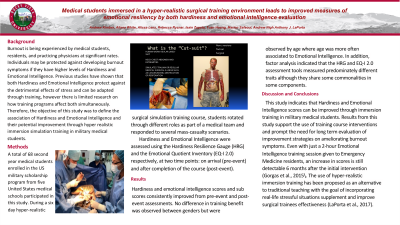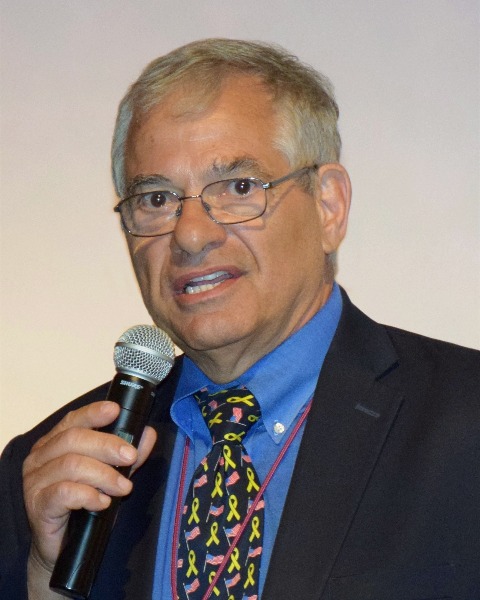General Surgery
Medical students immersed in a hyper-realistic surgical training environment leads to improved measures of emotional resiliency by both hardiness and emotional intelligence evaluation

Methods or Case Description:
A total of 68 second year medical students enrolled in the US military scholarship program from five United States medical schools participated in this study. During a six day hyper-realistic surgical simulation training course, students rotated through different roles as part of a medical team and responded to several mass-casualty scenarios. Hardiness and Emotional Intelligence were assessed using the Hardiness Resilience Gauge (HRG) and the Emotional Quotient Inventory (EQ-I 2.0) respectively, at two time points: on arrival (pre-event) and after completion of the course (post-event).
Outcomes:
Hardiness and emotional intelligence scores and sub scores consistently improved from pre-event and post-event assessments. No difference in training benefit was observed between genders but were observed by age where age was more often associated to Emotional Intelligence. In addition, factor analysis indicated that the HRG and EQ-I 2.0 assessment tools measured predominately different traits although they share some commonalities in some components.
Conclusion:
Hardiness and Emotional Intelligence scores can be improved through immersion training in military medical students. Results from this study support the use of training course interventions and prompt the need for long term evaluation of improvement strategies on ameliorating burnout symptoms.

Andrew Kimber, OMS-IV
Rocky Vista University
Rocky Vista University
North Salt Lake, Utah, United States
Anthony J. LaPorta, MD, FACS
Colonel Retired,USAMC, Professor of Surgery and Military Medicine.Defense Health Board Subcommittee on Trauma and Injury
Rocky Vista University
Rocky Vista University
Parker, CO, US
